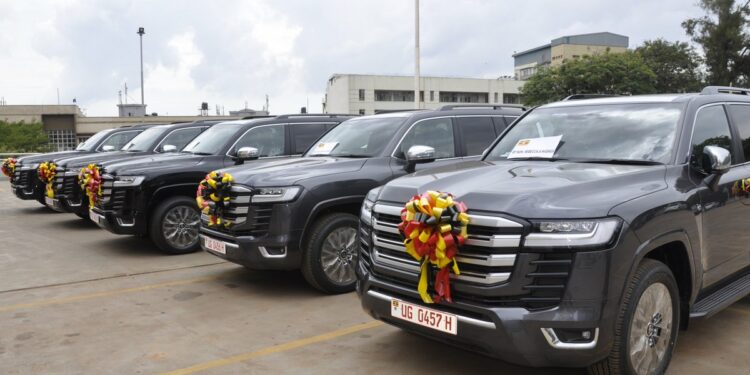In George Orwell’s allegorical masterpiece, “Animal Farm,” the pigs, after their revolution against human tyranny, proclaim that “All animals are equal.” However, as the story unfolds, this equality deteriorates, giving way to a new class hierarchy where some animals become more privileged than others.
Similarly, recent reports that the Ministry of Public Service is seeking Shs7.2 billion to procure luxurious cars for former leaders echo this unfortunate transformation. Edward Ssekandi, Prime Ministers; Ruhakana Rugunda, and Amama Mbabazi, akin to the privileged pigs in Animal Farm, stand to benefit from this extravagant allocation as part of their emoluments.
The panorama of Uganda’s public service mirrors the neglect evident in Animal Farm. Roads, the lifelines of communities, remain riddled with potholes and in dire need of repair. Schools lack basic resources, denying children the quality education they deserve. Hospitals struggle with a chronic shortage of essential drugs and medical supplies, compromising the health of the populace. Meanwhile, numerous civil servants, the backbone of the nation’s functioning, endure meagre salaries that barely sustain their livelihoods.
The analogy here is stark. The initial premise of equality among all animals (or citizens) loses its essence when a select few are granted disproportionate privileges at the expense of the collective welfare. Just as the pigs in Animal Farm diverted resources for their comfort while the other animals toiled, the allocation of such a vast sum for luxury cars for former leaders is an affront to the citizens’ needs and the principles of equitable governance.
In the same book, the pigs’ gradual transformation from revolutionary leaders to oppressive elites is fueled by their self-serving decisions. Likewise, the proposition to spend exorbitant amounts on luxurious vehicles for former leaders illustrates a deviation from the government’s responsibility to prioritize the common good.
Orwell’s metaphor sheds light on the dangers of unchecked authority and the erosion of ideals. The proposal to allocate such substantial funds for extravagant perks for a select few former leaders mirrors the deviation from the principles of fairness and fiscal responsibility.
Moreover, just as the pigs in Animal Farm distorted the original commandments to suit their agenda, the argument that these luxurious provisions are part of the emoluments and benefits package is a distortion of the true intent of post-service provisions. Emoluments should ensure dignified conditions without veering into opulence that burdens the state and its citizens.
The essence of Animal Farm lies in its warning against the corruption of ideals and the abuse of power. Similarly, the excessive allocation of luxury vehicles serves as a stark reminder of the dangers of a leadership class detached from the struggles and aspirations of the wider populace.
Furthermore, this misallocation of funds for luxury vehicles is not merely a financial issue. It’s a moral dilemma, reflecting a leadership mindset disconnected from the struggles and aspirations of the citizens. The disparity between the government’s allocation priorities and the reality faced by ordinary Ugandans echoes the pigs’ gradual detachment from the plight of their fellow animals in Animal Farm.
George Orwell’s Animal Farm serves as a poignant mirror reflecting the pitfalls of unchecked privilege and the erosion of fairness. The proposal to allocate Shs7.2 billion for luxury cars for former leaders embodies this distortion of fairness, emphasizing the need for responsible governance that prioritizes the collective good over the lavish indulgences of a select few.
Do you have a story in your community or an opinion to share with us: Email us at editorial@watchdoguganda.com













